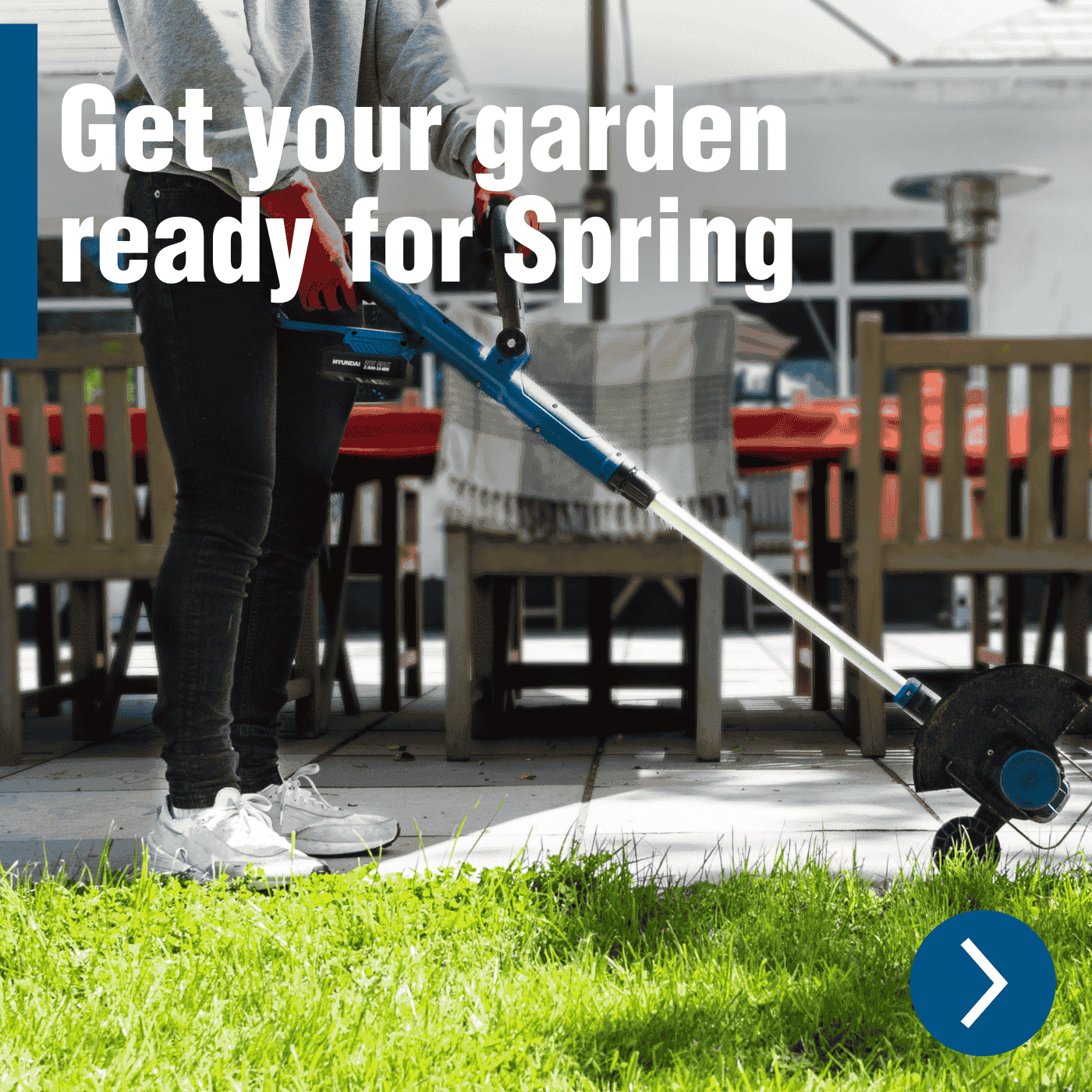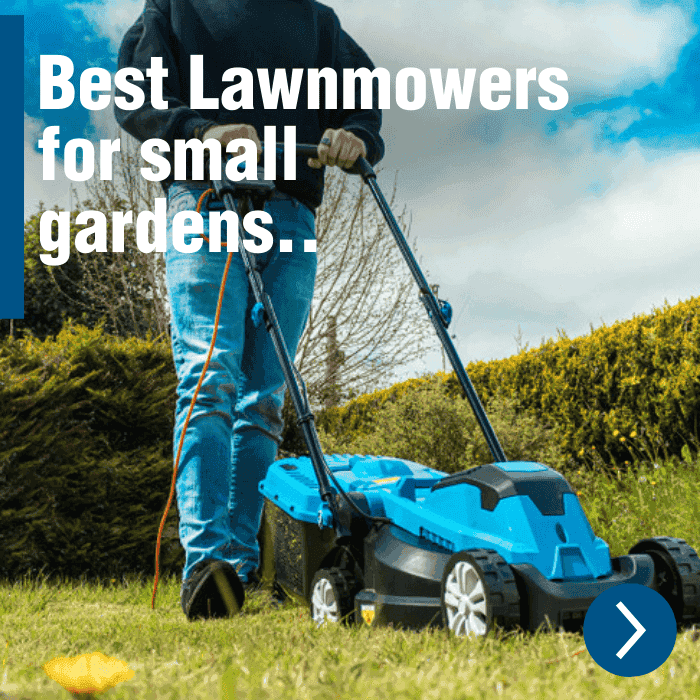Hyundai Power Equipment: Log Splitter Buying Guide
Posted by Hyundai Power Products on 23rd Apr 2025
Log Splitter Buying Guide
Choosing the right log splitter can save time, effort, and improve efficiency when splitting logs for wood-burning stoves or outdoor fireplaces.
At Hyundai Power Equipment, we offer a range of high-performance log splitters designed to meet your specific needs.
Whether you're a homeowner preparing firewood for the winter or a professional logger, this log splitter buying guide will help you make an informed decision.
What is a Log Splitter?

Types of Log Splitters
Choosing the right log splitter depends on how much wood you plan to split and the size of the logs. Here’s a breakdown of the different types:
1. Electric Log Splitters
Electric log splitters are ideal for homeowners with moderate wood-splitting needs. These models are typically quieter, more eco-friendly, and easier to maintain than petrol-powered options. They work best for splitting logs up to 40 cm in diameter. With splitting forces ranging from 5 to 10 tons, electric splitters are perfect for splitting up to 10 cubic metres of wood per year.
Key Advantages:
Quiet operation
Low maintenance
Ideal for smaller to medium-sized logs
Zero emissions
2. Petrol-Powered Log Splitters
Designed for heavy-duty use, petrol log splitters are best suited for those splitting large quantities of wood, typically over 12 cubic metres annually. With powerful 4-stroke engines and splitting forces that can reach 22 tons, petrol splitters can handle logs up to 60 cm in diameter. These machines are perfect for remote locations without access to electrical outlets.
Key Advantages:
High power output
Fast splitting times
Portable for use in remote areas
Suitable for large logs
3. Hydraulic Log Splitters
Hydraulic log splitters use hydraulic pressure to generate splitting force and are available in manual or tractor-mounted versions. Manual hydraulic splitters are ideal for light work, offering up to 10 tons of force, while tractor-mounted hydraulic splitters provide even more power, making them perfect for professional use. These are best for splitting larger logs or frequent use.
Key Advantages:
Powerful and reliable
Tractor-mounted options for large-scale operations
Suitable for professional or heavy-duty use#
Horizontal vs. Vertical Log Splitters
When choosing a log splitter, you’ll also need to decide between a horizontal or vertical design. Each has its own advantages depending on the type and size of logs you need to split.
Horizontal Log Splitters:
Best for smaller logs, typically less than 50 cm in length.
Requires more physical effort as you need to load the logs onto the machine's platform.
Suitable for lighter use and smaller jobs.
Vertical Log Splitters:
Ideal for larger, thicker logs over 50 cm in length and diameter.
Log positioning is easier since you don’t need to lift heavy logs onto a table.
Generally more powerful and suited for larger-scale operations.
Key Features to Consider
Splitting Force: The force, measured in tons, determines how easily your splitter will handle different sizes and types of wood. For larger logs, opt for a splitter with at least 10 tons of force.
Cycle Time: This refers to how long it takes for the splitter to split a log and return to the starting position. Faster cycle times improve efficiency when splitting multiple logs.
Log Size: Know the typical diameter and length of the logs you’ll be splitting. Electric splitters handle smaller logs (up to 40 cm in diameter), while petrol and hydraulic models can manage larger logs.
Power Source: Choose between electric for quieter, low-maintenance splitting, petrol for high power and portability, or hydraulic for the toughest jobs.
Portability: Consider whether you need a towable model, especially for petrol splitters, which can make it easier to move the splitter to different job sites
How to Choose the Right Log Splitter
When selecting a log splitter, consider the following factors:
How Much Wood You Need to Split:
If you split less than 10 cubic metres a year, an electric splitter will suffice. For more than 12 cubic metres, petrol or hydraulic models are recommended.
Size of Logs:
Larger, thicker logs require higher splitting forces. For logs over 50 cm in diameter, look for models with 10 tons of force or more.
Power Preference:
Choose electric for eco-friendly, quieter splitting, petrol for remote areas, and hydraulic for heavy-duty, professional needs.
Horizontal vs. Vertical: Choose horizontal for small to medium-sized logs and vertical for large, heavy logs that are harder to lift.
Additional Features to Look For:
Adjustable wedge height: Some splitters allow you to adjust the wedge height, making it easier to split logs of various sizes.
Safety features: Look for models with circuit breakers and emergency stop buttons for added protection.
Sturdy chassis: A robust, steel chassis will ensure your splitter lasts for years of heavy use.
Safety Tips
Using a log splitter involves working with powerful machines, so safety is paramount. Here are essential tips:
Always wear protective gloves, safety shoes, hearing protection, and eye protection.
Use a helmet when working with larger logs to prevent head injuries.
Ensure your workspace is clear of obstacles and on a stable surface.
Follow the manufacturer's guidelines for maintenance and operation.
Compare Hyundai Log Splitters
| Model | Splitting Force | Orientation | Max Log Diameter | Max Log Length | Motor Power | Weight | Safety Features | Warranty |
|---|---|---|---|---|---|---|---|---|
| HYLS5000HE | 5 Tonne | Horizontal | 250 mm | 520 mm | 2200W | 55 kg | Steel cage, two-hand control | 3-year home / 1-year commercial |
| HYLS7000HE | 7 Tonne | Horizontal | 250 mm | 520 mm | 2300W | 59 kg | Steel cage, two-hand control | 3-year home / 1-year commercial |
| HYLS8000VE | 8 Tonne | Vertical | 300 mm | 550 mm | 3000W | 98 kg | Steel cage, two-hand control | 3-year home / 1-year commercial |

 Expert Advice and Aftersales
Expert Advice and Aftersales Free UK Delivery*
Free UK Delivery*





